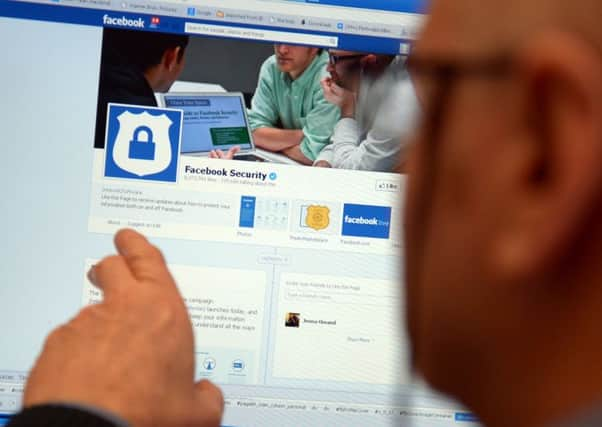Online oneupmanship can have career impact


FEBRUARY was a big month for Facebook – it acquired messaging giant WhatsApp and celebrated the tenth anniversary of its launch. It is an anniversary marked by tin and, fittingly, around the milestone there has been much speculation that it may kick the can in the next five years, despite claims by Facebook founder Mark Zuckerberg that its newly acquired WhatsApp is on course to connecting one billion people worldwide.
Regardless, in keeping with the current trends of voyeurism and digital connection, Facebook thanked its already billion-plus users by giving them the option of creating slide shows of their “best bits” for them, similar to what we see on the exit of a contestant from a reality television show. Well-done and emotion-provoking for users? Absolutely. However, it also served as a stark reminder that we as a collective have evolved into a race which feels the need to over-share and measure our popularity by how many reactions we can digitally trigger.
Advertisement
Hide AdAdvertisement
Hide AdHand in hand with that has come a stream of cases for employment tribunals to decide as employees have lost their jobs due to Facebook misuse. On top of that, there is no way to measure how many people have not got jobs they applied for after Facebook research carried out by prospective employers. Similarly, those who haven’t yet taken effective “ownership” of their future digital persona may find that the impact of one-upmanship status posting in their student days will impact on their future careers, particularly those who want to work in the public eye.
That is not to say social media has no role in the workplace – far from it. Businesses are using Facebook, Twitter and LinkedIn to reach out to their clients and customers and to drum up new ones. LinkedIn boasted a membership tally of over 200 million last year. Despite concerns over privacy leading it to pull its Intro Service after only four months at the start of February (the service inserted a shortcut bar to a sender’s LinkedIn account into e-mail messages), it is expected to continue to grow. In fact, many employees are now being encouraged, or even required, to create and maintain LinkedIn accounts to promote their employers’ businesses.
With that comes a new challenge for employers to tackle, namely ownership of social media accounts used by employees in the course of their employment; an important consideration when employment comes to an end. LinkedIn users have to sign up to a User Agreement which prevents them from transferring their accounts, meaning employees cannot transfer their accounts to employers or colleagues when they leave. So, are they free to take the contacts associated with the account which they have made in the course of their employment with them? What about any LinkedIn groups they may have set up?
Outwith the social networking sphere, the answers would be simple – ownership of contact lists and databases rests with the employer and amount to confidential information of the employer. A recent court decision has shed some light on the LinkedIn specific side.
In Whitmar Publications Limited v Garmage, the court compelled ex-employees to 1) return access, management and control of their LinkedIn accounts to their employer; 2) to stop preventing the employer from accessing the accounts; and 3) not contact clients named on gathered business cards. The employees in question had set up a rival business and tried to poach existing clients and employees of their former employer. They had taken over 400 business cards with them and had used the employer’s LinkedIn groups to further their new venture.
This case is helpful as it shows the courts are likely to find that contacts associated with a LinkedIn account belong to the employer. However, many LinkedIn accounts are personal and the contacts are shared with the employer. In any case, prevention is better than cure and there are steps employers can, and should, take to fend off problems before they crystallise.
It goes without saying that employers should have robust social media policies in place. These should be clear on what is and is not acceptable usage of all forms of social media, and that contacts made during the course of business belong to the employer. Employers should also consider making it a rule that personal LinkedIn accounts must be distinct from accounts for the purposes of employment or business, with work contact details, groups and knowledge only being used in the latter and, importantly, deleted on termination of employment.
That, coupled with well-worded post-employment restrictions in all contracts of employment should help prevent problems by 1) giving the employer contractual rights to enforce; 2) leaving an employee in no doubt as to what their employer’s stance is.
• Pamela Abbott is a solicitor with CCW Business Lawyers www.ccwlegal.co.uk